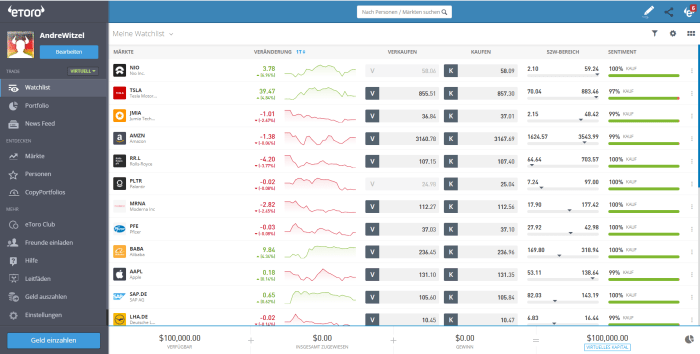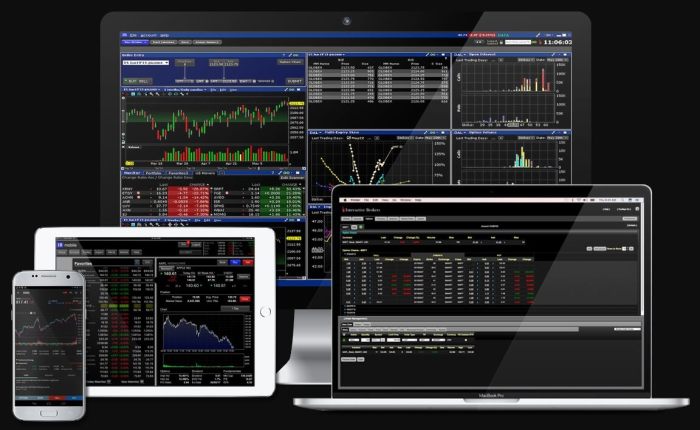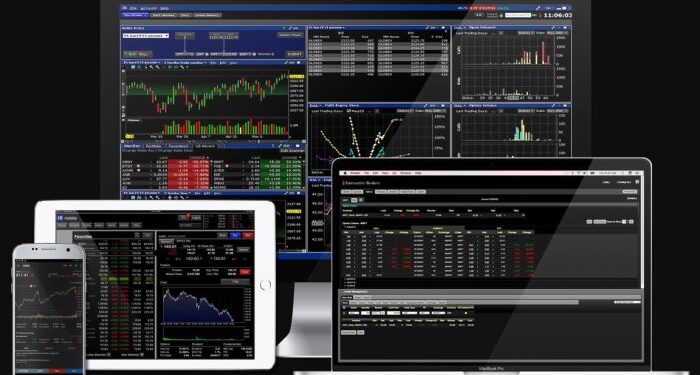Cheapest Forex Trading Platforms for Global Currency Exchange brings to light the essential tools that empower traders in the dynamic world of currency trading. With the forex market being the largest financial market globally, understanding the platforms that offer the best value for money is crucial for both novice and seasoned traders.
This guide will explore the various aspects of forex trading platforms, emphasizing cost-effectiveness without compromising on quality. By diving into the key criteria for choosing a platform and the essential features that enhance the trading experience, we aim to equip you with the knowledge needed to make informed decisions.
Introduction to Forex Trading Platforms
Forex trading, or foreign exchange trading, is the process of buying and selling currencies on the global market. It is crucial for international trade and investment, allowing businesses and individuals to convert one currency into another at current or determined prices. The forex market operates 24 hours a day, providing significant liquidity and opportunities for profit-making through speculation on currency price movements.
Given its global significance, selecting an effective forex trading platform is essential for traders aiming to capitalize on currency fluctuations.When choosing a forex trading platform, cost-effectiveness is a primary criterion. This includes evaluating spreads, commissions, deposit and withdrawal fees, and any other associated trading costs. A cost-effective platform helps traders maximize their profits by minimizing the costs incurred in executing trades.
Moreover, user-friendliness, security features, the range of available trading tools, and customer support quality are also vital factors to consider. Understanding these criteria helps traders select the most suitable platform for their needs and trading strategies.
Types of Forex Trading Platforms
There are several types of forex trading platforms available to cater to different trading styles and preferences. These platforms can be categorized based on their accessibility and functionality. Below are the main types:
- Web-Based Platforms: Accessible directly through a web browser, these platforms offer convenience and require no installation. They are ideal for traders who prefer mobility and ease of access across devices.
- Desktop Platforms: Installed on a local computer, these platforms often provide advanced trading capabilities and tools. They are suitable for serious traders who require comprehensive features and analysis.
- Mobile Trading Apps: Designed for smartphones and tablets, these apps enable traders to manage their accounts and execute trades on the go. They appeal to those who want to stay connected to the markets at all times.
- Demo Accounts: While not a platform type per se, many brokers offer demo accounts on their platforms. These allow traders to practice trading without risking real money, making them an excellent option for beginners.
Traders should assess their needs and preferences when selecting a platform type. For instance, a day trader might prefer a desktop platform for its advanced analytical tools, while a casual trader might opt for a mobile app for its convenience.
“The right forex trading platform can significantly enhance a trader’s ability to succeed in the dynamic foreign exchange market.”
Factors Affecting Platform Costs

Source: trusted-broker-reviews.com
The cost of trading platforms is influenced by a variety of factors, which traders must consider before choosing the right platform for their needs. These costs can significantly impact overall trading profitability, making it essential to understand the different elements that contribute to the total expenses associated with forex trading.One of the primary components affecting platform costs includes various fees and commissions.
These can encompass account maintenance fees, withdrawal fees, and trading commissions. Additionally, spreads, which represent the difference between the buying and selling price of a currency pair, play a crucial role in determining the overall cost of trading. Leverage, which allows traders to control larger positions with a smaller amount of capital, can also affect costs, particularly if used carelessly, leading to potential losses that outweigh the benefits.
Fees and Commissions
Understanding the types of fees associated with forex trading platforms is vital for effective cost management. Here are the common fees traders may encounter:
- Account Maintenance Fees: These fees can be charged monthly or annually and cover the administrative costs of maintaining a trading account.
- Withdrawal Fees: Many platforms impose fees for processing withdrawals, which can vary based on the payment method used.
- Trading Commissions: Some platforms charge a commission for each trade executed, which may be a fixed fee or a percentage of the trade size.
- Inactivity Fees: Accounts that remain inactive for a certain period may incur fees, incentivizing traders to remain active.
The importance of being aware of these fees lies in their potential to erode profits over time. Traders should carefully review the fee structures of their chosen platforms to ensure they align with their trading strategies and frequency.
Spreads and Leverage
Spreads are a critical cost factor in forex trading, representing the difference between the bid and ask prices. A narrower spread typically indicates a more cost-effective trading environment. Conversely, wider spreads can increase trading costs significantly, particularly for traders who make frequent transactions. Leverage enhances the potential for profits but also amplifies risks. When traders use leverage, they are essentially borrowing funds to increase their trading position.
This means that while profits can be maximized, losses can also be magnified. The relationship between leverage and cost is crucial; traders must balance their desire for higher leverage with the associated risks of increased costs and potential losses.
“Higher leverage can lead to greater profits, but it also increases the risk of substantial losses, making effective risk management essential.”
Currency Pairs and Trading Costs
The choice of currency pairs can significantly impact trading costs and platform selection. Different currency pairs have varying spreads, influenced by factors such as market liquidity and volatility. Major currency pairs, such as EUR/USD or USD/JPY, typically have tighter spreads and lower trading costs due to higher trading volumes and liquidity.Conversely, exotic currency pairs, which involve less commonly traded currencies, often have wider spreads and higher costs due to lower liquidity and increased market risks.
Traders need to consider their trading strategies and preferences when selecting currency pairs, as this decision can influence both potential profits and overall trading costs.In summary, being informed about the factors that affect platform costs, including fees, spreads, leverage, and currency pair selection, allows traders to make educated decisions that can enhance their trading experience and profitability in the forex market.
Comparing the Cheapest Forex Trading Platforms
When it comes to trading forex, selecting the right platform is crucial not only for cost efficiency but also for ensuring a smooth trading experience. With various platforms available, comparing their features, fees, and spreads can help traders find the most suitable option that aligns with their trading styles and budget. Below is a comparative analysis of some of the most affordable forex trading platforms on the market.
Features, Fees, and Spreads Comparison
Understanding the differences between platforms involves looking at key factors such as trading fees, spreads, user interface, and the features provided. The following table Artikels the essential aspects of some of the cheapest forex trading platforms:
| Platform | Trading Fees | Spreads | Minimum Deposit | Features |
|---|---|---|---|---|
| Broker A | Commission-free | 0.6 pips | $100 | Advanced charting, educational resources |
| Broker B | $5 per lot | 1.0 pips | $50 | Mobile trading app, market analysis |
| Broker C | No commission | 0.5 pips | $200 | Demo account, customer support |
| Broker D | $3 per lot | 0.8 pips | $10 | Social trading, algorithmic trading options |
The comparative table highlights significant differences in trading fees and spreads, which can affect overall profitability. While lower spreads can enhance trading conditions, the structure of fees and requirements for minimum deposits also plays an important role in choosing the right platform.
Advantages and Disadvantages of Budget-Friendly Platforms
Budget-friendly forex trading platforms offer several advantages that appeal to both novice and experienced traders. These include lower barriers to entry and the ability to trade without incurring high costs. However, these platforms also come with certain drawbacks that should be considered.
- Advantages:
- Cost savings on trading fees and spreads, making it accessible for beginners.
- Some platforms offer robust educational resources, facilitating better trading practices.
- Flexible minimum deposit requirements allow traders to start small and grow their accounts.
- Disadvantages:
- Lower-cost platforms may have fewer advanced trading features or tools.
- Some may lack comprehensive customer support, leading to challenges during trading.
- Budget-friendly platforms might have limitations on trading options, such as fewer currency pairs available.
Understanding these pros and cons is essential for traders to make informed decisions based on their individual needs and trading objectives.
User Experiences and Reviews
User experiences provide valuable insights into the functionality and reliability of forex trading platforms. Many traders have shared their thoughts on budget-friendly platforms, highlighting both positive and negative aspects.
“Broker A has an intuitive interface and offers excellent educational material, making it perfect for beginners.”
Trader from New York
“While Broker B has competitive spreads, their customer service is lacking, making it frustrating at times.”
Trader from London
Many users appreciate platforms that are cost-effective yet still provide adequate support and tools for trading. Positive reviews often mention ease of use and helpful resources, while negative feedback typically focuses on limited features or inadequate support. Overall, gathering user reviews helps potential traders gauge the reliability of these platforms before committing their funds.
Essential Features of Budget Trading Platforms

Source: forex.academy
When selecting a budget forex trading platform, it’s crucial to identify the key features that not only enhance the trading experience but also provide a solid foundation for new and experienced traders alike. The right platform should balance affordability with functionality, ensuring that users can trade effectively without facing unnecessary limitations.One of the most significant aspects of budget trading platforms is their user-friendly interface, which allows traders to navigate seamlessly between various functionalities.
Additionally, robust security measures are vital to safeguard user data and funds. Real-time data access, including live quotes and news updates, ensures that traders can make informed decisions promptly. Furthermore, the ability to execute trades quickly and efficiently can be a decisive factor in a trader’s success.
Importance of Customer Support and Educational Resources
Customer support and educational resources are essential components that can greatly influence a trader’s experience, especially on budget platforms. Reliable customer support ensures that traders can address their concerns quickly, which is particularly important during volatile market conditions.Educational resources empower traders by providing them with the knowledge necessary to enhance their skills. This can include tutorials, webinars, and articles that cover various aspects of trading strategies, market analysis, and risk management.
Having access to such resources not only boosts a trader’s confidence but also fosters a better understanding of the market dynamics.
Additional Tools and Resources for Enhanced Trading Experience
Beyond the basic functionalities, several additional tools and resources can significantly enrich the trading experience on budget platforms. Understanding these elements can help traders maximize their potential without stretching their budgets.Some notable resources and tools include:
- Technical Analysis Tools: Features such as charting tools, indicators, and trend analysis help traders analyze price movements effectively.
- Risk Management Tools: Stop-loss and take-profit orders are essential for managing risk, allowing traders to set predefined exit points.
- Mobile Trading Applications: Many budget platforms offer mobile apps that enable traders to monitor their accounts and execute trades on the go.
- Demo Accounts: These allow users to practice trading strategies without risking real money, providing a risk-free environment to learn.
- Economic Calendar: Keeping track of important economic events helps traders anticipate market volatility and make informed decisions.
Each of these tools not only adds value to the trading experience but also ensures that even budget-conscious traders can compete effectively in the dynamic forex market. By leveraging these features, traders can navigate the complexities of currency exchange with greater confidence and efficiency.
Strategies for Minimizing Trading Costs

Source: forex.academy
In the fast-paced world of forex trading, minimizing costs is crucial for maximizing profitability. Traders can adopt several strategies to ensure that their trading expenses do not eat into their potential gains. Understanding how to navigate fees and commissions effectively can lead to significant savings over time.The frequency of trades plays a significant role in the overall trading costs. Higher trading frequency can lead to increased costs due to commissions and spreads, whereas a more strategic approach, focusing on fewer but larger trades, can help manage these expenses.
Keeping an eye on the cost per trade is essential for long-term success in forex trading.
Effective Cost-Reduction Strategies
Implementing effective strategies to minimize trading costs can significantly improve your trading outcome. Here are some practical tips to help you reduce expenses while trading:
- Choose low-cost brokers: Research and select forex brokers with competitive spreads and low commission fees to find a platform that suits your trading style.
- Use a demo account: Practice trading strategies in a demo account to refine your skills without incurring any costs.
- Limit trading frequency: Be mindful of how often you trade. Fewer trades can help reduce costs related to commissions and spreads.
- Monitor swap rates: Pay attention to overnight fees and choose currency pairs with favorable swap rates if you plan to hold positions overnight.
- Leverage trading tools: Utilize tools and platforms that offer advanced analytics and automated trading, which can help you make more informed decisions and potentially reduce losses.
- Negotiate fees: Don’t hesitate to reach out to your broker to discuss fee structures and see if there is room for negotiation, especially if you are a high-volume trader.
“Understanding and managing trading costs is just as crucial as mastering trading strategies.”
Regulatory Considerations and Safety
When choosing a budget-friendly forex trading platform, understanding regulatory compliance and licensing is crucial for ensuring both safety and reliability. Trustworthy platforms often adhere to strict regulations set by recognized authorities, which helps to protect traders from fraud and malpractice. The significance of these regulations cannot be understated, as they serve as a safeguard for traders’ investments, particularly when dealing with global currency exchange.Regulatory bodies play a key role in overseeing trading platforms to ensure they follow established standards and practices.
These organizations provide necessary licenses and enforce rules that platforms must comply with, thereby promoting transparency and ethical trading practices. For instance, regulatory bodies like the Financial Conduct Authority (FCA) in the UK, the Commodity Futures Trading Commission (CFTC) in the US, and the Australian Securities and Investments Commission (ASIC) in Australia are known for their stringent requirements and oversight.
Importance of Regulatory Bodies
The role of regulatory bodies extends beyond mere compliance; they serve to instill confidence among traders. Here are some critical aspects that emphasize their importance:
- Protection Against Fraud: Regulatory authorities implement measures that hold platforms accountable, reducing the risk of scams.
- Transparency: Licensed platforms typically provide clear information about fees, execution speeds, and services, which helps traders make informed decisions.
- Dispute Resolution: Many regulatory bodies offer mechanisms for traders to resolve disputes if they arise, adding an extra layer of security.
- Capital Requirements: Platforms under regulatory oversight must maintain sufficient capital, which enhances their financial stability.
Security measures and user data protection are also vital considerations for budget trading platforms. With the increasing prevalence of cyber threats, it is essential that platforms implement robust security protocols to safeguard personal and financial information. Traders need to be aware of the following security practices:
Security Measures for User Protection
To ensure safety while trading on budget platforms, consider the following security measures:
- Encryption Technology: Look for platforms that employ advanced encryption methods to protect sensitive information from unauthorized access.
- Two-Factor Authentication (2FA): This adds an extra layer of security by requiring a second form of verification, such as a code sent to your phone.
- Regular Security Audits: Platforms that undergo routine security assessments demonstrate a commitment to safeguarding trader data.
- Data Privacy Policies: Understand the platform’s data handling policies to ensure your information is used responsibly and ethically.
The combination of regulatory oversight and stringent security measures provides a safer trading environment, particularly on budget platforms. By carefully evaluating these factors, traders can make informed decisions while minimizing risks associated with forex trading.
Future Trends in Affordable Forex Trading
The landscape of forex trading platforms is evolving rapidly, with a focus on affordability and accessibility. As technology advances and market dynamics shift, traders can expect to see new innovations that may significantly reduce trading costs. This discussion highlights emerging trends and technological advancements that are shaping the future of forex trading, ultimately leading to cheaper and more user-friendly platforms.
Emerging Trends Impacting Forex Trading Costs
Several trends are poised to influence the pricing of forex trading platforms, making them more affordable for a broader range of traders. Understanding these trends is essential for recognizing the direction of the market.
- Increased Competition: The influx of new entrants into the market is driving competition among forex brokers. This competitive environment often results in lower fees, tighter spreads, and better service offerings for traders.
- Regulatory Changes: Stricter regulations aimed at protecting consumers can also impact pricing. While compliance may increase costs for some platforms, the overall market could see a reduction in costs as brokers strive to attract clients with competitive pricing.
- Community Trading Platforms: Social trading and copy trading platforms are gaining popularity. These platforms often have lower fees, as they pool resources and leverage shared trading strategies, making forex accessible to novice traders.
Technological Advancements Reducing Trading Costs
Technological innovations play a crucial role in driving down costs associated with forex trading. Various advancements are reshaping how platforms operate, enhancing efficiency and accessibility.
- Algorithmic Trading: The integration of algorithmic trading systems can reduce transaction costs by automating trades and executing them at optimal market conditions without human intervention. This technology minimizes slippage and can lead to better pricing.
- Artificial Intelligence: AI tools are paving the way for improved market analysis and prediction capabilities. These tools can provide traders with insights that lead to more strategic decision-making and cost-effective trading.
- Blockchain Technology: The adoption of blockchain in forex trading can enhance transparency and reduce costs associated with intermediaries. Smart contracts can facilitate faster and cheaper transactions, contributing to overall affordability.
Insights into the Future of Affordable Forex Trading
Looking ahead, the future of forex trading appears bright, with a strong potential for cheaper platforms and enhanced accessibility. Factors such as the democratization of trading through technology, the growing interest in retail trading, and increasingly favorable regulatory environments are all contributing to this trend.
“Advancements in technology and increased competition among brokers indicate a promising future for affordable forex platforms, making trading accessible to all.”
Continual innovation, such as the rise of mobile trading apps, is expected to further lower barriers to entry. These apps often feature low or no commissions, providing a seamless trading experience directly from smartphones, which will only enhance trader participation in the forex market. As these trends evolve, they not only promise to minimize costs but also elevate the overall trading experience by making it more efficient and user-friendly.
Investors can anticipate a future where affordability and accessibility in forex trading are the norms rather than the exceptions.
Ending Remarks
In summary, navigating through the realm of forex trading platforms can be daunting, but focusing on affordability and essential features can lead to fruitful trading experiences. By comparing options and understanding the costs involved, traders can maximize their potential while minimizing expenses. With the right platform, the journey in global currency exchange can become not only profitable but also enjoyable.
FAQ Explained
What are the typical fees associated with forex trading platforms?
Typical fees include spreads, commissions, and account maintenance fees, which can vary significantly between platforms.
How can I ensure a forex platform is safe?
Look for platforms that are regulated by recognized authorities and offer robust security measures for user data.
Are there any hidden costs in trading forex?
Yes, hidden costs may include withdrawal fees, inactivity fees, and variable spreads that can affect overall trading expenses.
Can beginners use budget-friendly forex platforms?
Absolutely! Many budget-friendly platforms offer educational resources and user-friendly interfaces ideal for beginners.
What are the benefits of using a cheap trading platform?
Benefits include lower trading costs, accessibility to essential features, and the opportunity to allocate funds toward other trading strategies.




![Best RV Portable Waste Tank [2020] | Top Motorhome Reviews](https://money.narasi.tv/wp-content/uploads/2025/06/BestPicks-350x250.png)




![Best RV Portable Waste Tank [2020] | Top Motorhome Reviews](https://money.narasi.tv/wp-content/uploads/2025/06/BestPicks-75x75.png)






